Save your smile with Nuffield Dental's expert Root Canal care! At Nuffield Dental, we understand the discomfort and anxiety that come with tooth pain. Whether it’s due to decay, a cracked tooth, or an old filling, our specialised root canal treatment can save your tooth and restore your comfort. With our advanced technology and compassionate care, we'll address your dental concerns before they escalate. Trust our experienced team to preserve your smile and dental health.
What is a Root Canal?
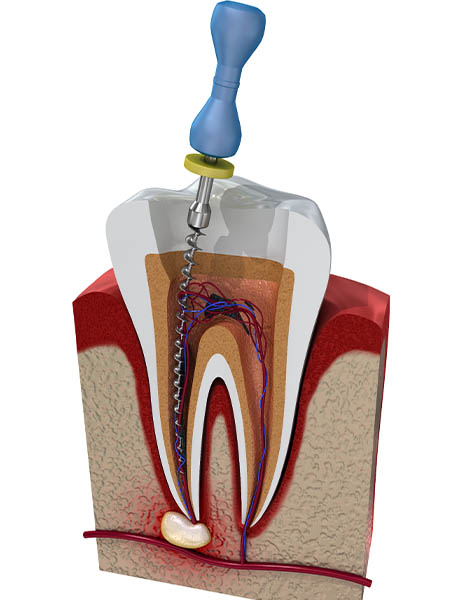
What is a Root Canal?
A root canal, also known as endodontic treatment, is more than just a procedure – it’s a lifesaver for teeth that are in danger of being infected or damaged. To better understand what a root canal is, it’s important to first understand the structure of a tooth.
A tooth consists of three layers: the outer enamel, the middle layer made up of dentine and cementum, and the innermost pulp (pulp chamber), which houses nerves and blood vessels that are responsible for the tooth’s critical functions. The pulp is normally shielded by the thick layers of dentine and enamel.
When a root canal infection occurs, bacteria penetrate the tooth’s outermost protective layers - the enamel and dentin. The germs then invade the tooth root, which includes the pulp chamber housing the tooth's blood vessels and nerves, causing inflammation and pain. The entire root canal system, including the pulp chamber and the tiny channels that go through the roots, must be meticulously cleaned in order to treat this infection. After removing the germs and unhealthy tissue, the canals are cleaned, disinfected, and sealed to stop further infections and maintain the tooth's structural integrity.
In Singapore, about 8% of adults have had a root canal – it’s common and necessary. Root canal treatment saves your natural tooth, relieves pain and prevents further complications by removing the infected pulp and sealing the tooth from further damage and irreversible pulp inflammation called pulptitis. This procedure helps thousands of patients avoid tooth extraction and keep their natural smile, their oral health and overall well-being.
Save your smile with Nuffield Dental. Book your appointment with our root canal specialist today.
Root Canal Treatment Benefits
- Pain relief: Goodbye to tooth pain that’s been keeping you up at night.
- Tooth preservation: Keep your natural tooth instead of losing it to extraction.
- Oral health: Stop infection from spreading to other teeth or your jaw.
- Function restored: Chew and bite normally again without discomfort.
- Looks natural: Your treated tooth can be capped with a natural looking crown.
- Cost effective: It’s often cheaper than extracting and replacing a tooth.
- Quick recovery: You can go back to normal activities the next day.
- Stops the spread of infection: Root canal treatment removes infection-causing bacteria, preventing it from spreading to the jaw, soft tissues, and facial spaces.
Root canal treatment helps you maintain good oral hygiene. You can brush and floss the treated tooth just like your other teeth. This keeps your whole mouth healthier.
You need to take good care of your teeth after a root canal. Your dentist will give you instructions on how to clean and protect the treated tooth. With good care your treated tooth can last a lifetime.
Root Canal Treatment Benefits

Root Canal Symptoms
You may need root canal treatment if you notice:
- Persistent toothache: You feel a deep, aching pain in your tooth that doesn’t go away. Other causes of tooth pain may include:
- having a cavity
- gum disease
- a damaged filling
- a tooth infection
- repeated dental procedures on tooth
- Sensitivity to hot and cold: Your tooth hurts when you eat ice cream or drink hot tea.
- Chipped or cracked tooth: To prevent infection and damage to the tooth's pulp, which can occur when the protective layers are compromised.
- Swollen gums: The area around your tooth is puffy or tender.
- Discoloured tooth: Your tooth has changed colour, looking grey or black.
- Pain when chewing: When biting down on food causes sharp pain in your tooth which could mean that something damaged the nerves around your tooth pulp.
- Loose tooth: Your tooth feels wobbly or moves slightly when touched.
- Pimple on gum: You see a small bump near the painful tooth that may ooze pus.
These symptoms usually mean tooth decay, deep cavities, a leaky filling or a cracked tooth has reached the pulp of your tooth. If you have any of these signs, see a root canal specialist ASAP. They can check if you need a root canal to save your tooth and stop the pain.
Not all tooth pain means you need a root canal. Sometimes a filling can fix the problem. But if the decay or damage is severe, root canal therapy might be your best option to keep your natural tooth.
Don’t ignore tooth pain or sensitivity. The sooner you get it checked the better chance you have of avoiding more serious dental problems.
To see whether you need a root canal or not, send Nuffield Dental a message and let us take care of your teeth the right way.
How Do You Know If You Need Root Canal Treatment?
You should see a dentist as soon as you experience the symptoms you mentioned, especially if they’re severe or getting worse.
As the infection advances, these symptoms often fade as the pulp dies. Although your tooth may seem to have healed, the infection has actually spread throughout the root canal system.
Here are some general guidelines when to get help:
- Persistent Pain: You should see a dentist if you have severe toothache pain that lasts more than one to two days, especially when you chew or apply pressure.
- Sensitivity to Temperature: You should have your tooth checked to see if it’s still sensitive to hot or cold temperatures for more than a few seconds after the stimulus has been removed, and this persists for a few days.
- Gum swelling or tenderness: If the gums around the affected tooth continue to swell or become painful for more than a few days, a dentist should take a look.
- Abscess or Lesion on Gums: You should get dental care right away if you see an abscess or a lesion that looks like a pimple on your gums, especially if it doesn’t go away or keeps coming back because it may be an infection.
- Tooth Discolouration: Any sudden or obvious darkening or discolouration of a tooth should be seen by a dentist very soon.
- Swelling Around the Face or Neck: If you have swelling around your face or neck, it may be a sign of an infection that needs immediate attention.
Root Canal Causes
Book your root canal consultation at Nuffield Dental today!
Types of Root Canal Treatments
Root canals which is also known as endodontic treatment can be divided into surgical and non-surgical procedures, each for different types of dental needs.
Non-surgical root canal is the most common one, for contained pulp infections. It involves accessing the infected pulp through the crown of the tooth, cleaning it and sealing it to prevent further infection.
Surgical root canal, or apicoectomy, is used for more complex cases where non-surgical methods won’t work. This is usually due to unusual root structures, hidden canals that were not detected during initial treatments or persistent infections. In these cases, a small portion of the gum is opened to access the root directly from the tip, to remove the infected tissue and seal the root tip.
Root Canal Treatment Procedure
Before the Procedure
During the Procedure
A temporary filling is then placed to protect the tooth until a permanent crown can be made.
If the tooth doesn't have enough structure to support the restoration, your dentist or endodontist may insert a post inside the tooth. Be sure to ask them for more information about the specific restoration planned for your tooth.
After the Procedure
You may feel some jaw soreness for a few days. This is normal and can be managed with over the counter pain relief.
Don’t chew on the treated tooth until you get your permanent crown. This will prevent damage to the temporary filling.
Your dentist will book a follow up appointment to check on your recovery and fit your permanent crown. This crown will protect your tooth and restore its function.
If you experience severe pain, swelling or your temporary filling falls out contact your dentist immediately.
Root Canal Treatment Risks
Root canal treatments are generally safe but like any medical procedure they come with some risks. However, in some cases, the damage may be too extensive, or the enamel too fragile to endure the procedure, which can result in tooth loss. Another potential risk is the development of an abscess at the tooth's root if any infected material is left behind or if the antibiotics prove ineffective.
Here are some side effects you may experience:
- Swelling: Gums may swell around the treated tooth.
- Tooth discolouration: Tooth may darken.
- Instrument separation: Instruments may break off inside the root canal.
- Root canal perforation: Canal wall may be punctured.
- Incomplete treatment: May not be able to access the full length of the root canal.
- Allergic reaction: You may react to the materials used, this is rare.
- Tooth fracture: Treated tooth may become more brittle and prone to cracking.
To minimise these risks follow your dentist’s advice and take any prescribed antibiotics to prevent bacterial infection. If you experience severe pain, swelling or signs of pulp infection contact your dentist immediately.
Root canal treatments are generally safe, but understanding the risks is key. Follow your dentist's advice and stay proactive about your oral health. Schedule a consultation at Nuffield Dental today!
Root Canal Treatment Complications
Root canal treatment is generally safe and effective, but like any medical procedure, it can sometimes lead to complications. You might experience these issues after your treatment:
- Persistent pain: You may feel discomfort for a few days after the procedure. If the pain lasts longer or becomes severe, it could indicate a problem.
- Reinfection: Sometimes, the infected pulp tissue isn't fully removed, leading to a recurring infection. Drainage issues may extend from the root, potentially causing a hole to form on the side of the tooth, allowing drainage into the gums, or through the cheek, leading to drainage into the skin. This might require retreatment or extraction.
- Nerve damage: In very rare instances, the nearby nerves might be affected, causing numbness or tingling.
- Might leave off the root canals in a tooth to be uncleaned: Leaving one of the root canals uncleaned during a root canal procedure can allow bacteria to remain, leading to infection.
- Undetected cracks in the root of a tooth: It can provide a pathway for bacteria to enter, causing infection even after treatment.
- A problem with restoration: If a restoration is faulty, it may allow bacteria to penetrate and reach the inner tooth, compromising the success of the root canal.
- Breakdown of inner sealing material: Over time, the breakdown of the sealing material inside the tooth can create gaps where bacteria can reenter and reinfect the tooth.
If you experience any of these complications, it's crucial to contact your dentist promptly. They can assess the situation and provide appropriate treatment to resolve the issue and preserve your tooth health.
At Nuffield Dental, we will make sure to guide you and help minimise the possibility of these complications. Book an appointment today and get the best smile you can have!
Cost of Root Canal Treatment in Singapore
You'll find that costs vary depending on where you get the procedure done.
| Root Canal Treatment | SGD 400.00 - SGD 800 |
| Dental Crowns | |
| Metal/Ceramic Crown | SGD 700 - SGD 800 |
| Semi-Precious/Precious Metal Crown | From SGD 750 |
| Porcelain/Ceramic Crown | SGD 750 - SGD 950 |
| Zirconia Crown | SGD 1,100.00 |
Here's a quick breakdown of average costs:
- Incisors and premolars: SGD 760 - SGD 870
- Molars: SGD 1,200 - SGD 1,450
Keep in mind these prices may not include:
- Initial consultation (SGD 75 - SGD 192)
- X-rays (SGD 30 - SGD 300)
- Crown placement after treatment (SGD 750 - SGD 1200)
The cost of a root canal treatment depends on a few factors. This includes the type of tooth, the anatomy of the roots as well as the extent of the remaining tooth structure. Molars tend to be larger than premolars, canines and incisors. They also have more roots and often multiple root canals within the roots, which makes their treatment more complex.
Another factor is the amount of remaining good tooth structure. The more extensive the damage or loss of healthy tooth structure, the more structure your dentist will need to replace. This may mean a larger permanent filling (or core), a post within the root canal system and often a permanent crown following the completion of your root canal treatment.
Since dental crowns are typically required to restore your tooth post-root canal, you would also have to factor them into the cost of the entire treatment. The cost of dental crowns then depends on the type of material used, such as porcelain, ceramic, or metal.
Book your root canal consultation at Nuffield Dental today!
Are There Subsidies for Root Canal Treatment?
Root canal treatments are not MediSave claimable. However, CHAS subsidies are available for both root canal treatment (up to 2 per calendar year) and dental crowns (up to 4 per calendar year).
You can find the relevant subsidies in the table below:
| Dental Service | CHAS Orange | CHAS Blue | Merdeka Generation | Pioneer Generation |
| Root Canal Treatment (Anterior) | SGD 109.50 | SGD 164.00 | SGD 169.00 | SGD 174.00 |
| Root Canal Treatment (Pre-molar) | SGD 140.00 | SGD 210.00 | SGD 215.00 | SGD 220.00 |
| Root Canal Treatment (Molar) | SGD 170.50 | SGD 256.50 | SGD 261.50 | SGD 266.50 |
| Permanent Crown | SGD 84.50 | SGD 127.50 | SGD 132.50 | SGD 137.50 |
Do visit the CHAS website for more details.
Why Choose Nuffield Dental for Root Canal Treatment?
Choose us for a mix of expert care, personalised treatment, and comfort at fair prices; book your appointment for a positive experience and the smile you deserve.
Our Root Canal Specialists - Endodontists
Dr. Irene Sim is a specialist endodontist with a Master’s in Dental Surgery from the National University of Singapore and a Membership in Endodontics from the Royal College of Surgeons, Edinburgh. She is a board certified specialist and a Fellow of the Academy of Medicine, Singapore. Dr. Sim has won several awards for her work including the Singhealth Young! Publish award and the ORH ACP Young Clinician Publication award for her research on cracked teeth. She is also a key opinion leader and certified trainer.
Preventing Root Canals
- Brush Daily: Brush your teeth at least twice a day with fluoride toothpaste and don’t forget to brush before bed. This removes the days build up of plaque and prevents decay.
- Floss Daily: Floss daily to remove plaque and food between the teeth where a toothbrush can’t reach. This reduces the risk of decay and gum disease that can lead to root canal.
- Choose the Right Tools: Use a soft toothbrush to avoid damaging your gums and enamel and replace every 3-4 months or sooner if the bristles are frayed. An electric toothbrush can be more effective in removing plaque and gingivitis.
- Limit Sugary Foods and Acidic Drinks: Reduce your intake of sugary snacks and drinks and highly acidic foods and drinks that can erode tooth enamel and cause decay. Opt for healthy snacks like vegetables, nuts and cheese that help neutralize mouth acids and rebuild tooth enamel.
- Ask About Sealants: Ask your dentist about applying sealants to your teeth. Sealants are protective coatings applied to the biting surfaces of the back teeth (molars) that can prevent decay and thus reduce the chance of needing a root canal.
- Protect Your Teeth During Sports: Wear a properly fitted mouthguard during any sports activities. This can reduce the risk of dental injuries like cracked or broken teeth that may otherwise require root canal.

Book an Appointment
Fill out the form for any request or questions you have and we will contact you within one working day.
Cost Of Root Canal Treatment In Singapore

Cost Of Root Canal Treatment In Singapore
Root Canal Treatment Cost
The price varies according to the unique treatment prescribed to each individual patient. For example, if a root canal treatment is require for more than one root, the cost would go up as well. However, saving the tooth with a Root Canal treatment is relatively cost-efficient in the long run.
A Root Canal Treatment procedure in Singapore's price ranges from S$500 - S$1700. However, the price may or may not include the crowning of the tooth and consultation charges. Average consultation prices of dental services in Singapore ranges from S$75- S$200.
Root Canal Treatment FAQs
Is a Root Canal Treatment procedure painful?
- The entire procedure will be done under local anaesthesia, so it will not be painful than getting your tooth filled or a wisdom tooth surgery. However, the affected area may cause discomfort and be slightly sore post-surgery but it goes away after a few days.
- If the pain persists, please consult our doctor immediately. You can reach us at +65 9839 7363.
Can I go about my day to day activities after a Root Canal Treatment?
-
Most patients are able to return to school or work the next day following a Root Canal Treatment. However, it is advised against eating immediately post-surgery as there may be numbness in the affected area.
What are the side effects of a Root Canal Treatment?
- The side effects of a Root Canal Treatment differs with each individual. Some people may experience pain or a slight soreness post-surgery, and some people may experience little to no pain at all. This also applies to certain patients experiencing a measured amount of sensitivity associated to cold or heat when consuming food or beverages.
What is the aftercare for a Root Canal Treatment?
- As a Root Canal Treatment is considered a restorative procedure, the after-care is deemed crucial to experience lasting effects. After your procedure, your dentist will send you home with pain-killers to counter the soreness you may feel when the anaesthesia wears off. It is also strongly advised against the consumption of food until the numbness wears off. Brushing and flossing daily is encouraged to keep the area clean and this in turn would prevent infection. Upon completing any follow-up appointments for the Root Canal Treatment, you may be required to return to the dentist for a final crown to fully restore the tooth. A properly treated and restored tooth can last as long as your natural teeth.
Can a Root Canal Treatment be unsuccessful?
- A Root Canal Treatment has a 90% success rate of fully restoring your tooth. However. failure to fully restore your tooth can occur if there is a loose crown, tooth fracture or decay. Undetected canal branches or an obstruction that causes the cleaning difficulties may also cause a Root Canal Procedure to fail. Should your Root Canal Treatment be unsuccessful, explore options with Nuffield's Endodontist for possible solutions.
Orchard Dental
Nuffield Dental Jewel
Wheelock Place501 Orchard Road #05-01 Singapore 238880

The Nuffield Dental Clinic Network In Singapore
Seletar Dental
Nuffield Dental Seletar
Greenwich V
1 Seletar Road #01-07/08
Singapore 807011

Kovan Dental
Nuffield Dental Kovan
Simon Plaza
2 Kovan Road #01-03
Singapore 548008

Serangoon Dental
Nuffield Dental Serangoon Gardens
Serangoon Garden Estate
57 Serangoon Garden Way
Singapore 555953

Siglap Dental
Nuffield Dental Siglap
The Domain
914 East Coast Road #01-03
Singapore 459108

Bedok Dental
Nuffield Dental Simpang Bedok
East Village
430 Upper Changi Road #01-64
Singapore 487048

Holland Village Dental
Nuffield Dental Holland Village
7 Holland Village Way #03-16
Singapore 275748

Jurong East Dental
Nuffield Dental Westgate
Westgate
3 Gateway Dr #04-32
Singapore 608532

HarbourFront Dental
Nuffield Dental HarbourFront
HarbourFront Centre
1 Maritime Square #02-64A
Singapore 099253

Novena Dental
Nuffield Dental Novena
Novena Medical Centre
10 Sinaran Dr #09-26
Singapore 307506

Orchard Dental
Nuffield Dental Jewel
Wheelock Place
501 Orchard Road #05-01
Singapore 238880

Raffles Place Dental
Nuffield Dental Raffles Place
One Raffles Place
1 Raffles Place #05-19
Singapore 048616

FAQs
What is the Success Rate of Root Canal Treatment?
Root canal treatment has a high success rate of about 90%. Most teeth treated with root canals can last a lifetime with proper care and regular dental check-ups.
What Happens if I Delay Root Canal Treatment?
Delaying treatment can lead to worsening pain, infection spread, and possible tooth loss. The infection may damage surrounding bone and require extraction if left untreated for too long.
Is Root Canal Treatment Safe?
Yes, root canal treatment is safe, as it is a common and effective procedure performed by trained dental professionals to treat and save infected teeth.
Are there alternatives to Root Canal Treatment?
The only alternative to a root canal is tooth extraction, followed by replacement with a bridge, implant, or removable partial denture to restore chewing function and prevent shifting of nearby teeth — options that are generally more costly, time-consuming, and may involve additional procedures on adjacent teeth and supporting tissues.
What kind of dentist does root canals?
Although all general dentists are trained to perform root canals, the procedure is most often done by an endodontist, who specialises in the health of the tooth’s interior, while a general dentist typically focuses on the health of the teeth's exterior and gums.
Is Root Canal Treatment Painful?
Root canal procedures are typically not painful. You'll receive local anaesthesia to numb the area. You may feel some discomfort for a few days after. However, this is usually manageable with over-the-counter pain relievers.
How serious is a Root Canal?
A root canal treats serious tooth infections that have reached the pulp. Without treatment, the infection can spread, potentially leading to abscesses, bone loss, and systemic health issues.
How long will my treated tooth last?
A tooth that has undergone a root canal can last 5 to 10 years before requiring further treatment. However, there are rare cases where the tooth may become reinfected despite successful initial treatment, possibly due to leakage from new decay, cracks, gum issues, or an overlooked root canal.
Do root canals cause cancer?
There is no evidence whatsoever that a root canal can lead to cancer. In fact, a root canal is the only effective method for removing an infected tooth that could potentially spread and cause serious diseases or health issues. Any assertions that root canals cause cancer or other illnesses are entirely unfounded myths.
Can you drink alcohol after a root canal?
After a root canal procedure, you can resume eating and drinking normally, including consuming alcohol, once the numbness has subsided.
Is it Better to Have a Root Canal or Extraction?
When possible, saving your natural tooth with a root canal is often better than extraction. It preserves your bite, prevents shifting of other teeth, and avoids the need for costly replacements.
Does a Root Canal Kill the Tooth?
A root canal removes the tooth's nerve and pulp, but the tooth remains functional. It's not "dead" but can no longer feel sensations. The tooth continues to receive nutrients from surrounding tissues.
How long do root canals treatments take?
Root canal treatments typically take 1-2 hours per visit. Simple cases may be completed in one appointment, while more complex cases may require 2-3 visits.
How Long Does a Root Canal Take to Heal?
Most patients feel better within a few days. Full healing can take a few weeks. Follow your dentist's aftercare instructions for the best recovery.
Can I Be Put to Sleep for a Root Canal?
While general anaesthesia isn't typically used, sedation options are available if you're anxious. Discuss your concerns with your dentist to find the best approach for you.
When is it Too Late for a Root Canal?
It's rarely too late for a root canal if the tooth can be saved. However, if decay or damage is too extensive, extraction may be necessary. Prompt treatment improves outcomes.
How Many Days Should You Rest After a Root Canal?
Most people can return to normal activities the day after treatment. Take it easy for a few days and avoid strenuous exercise for 2-3 days to aid healing.
Will I Need a Dental Crown?
Many teeth treated with root canals benefit from crown placement. This protects the weakened tooth structure and restores full function. Your dentist will advise if a crown is needed.
Can I Eat After a Root Canal?
Wait until numbness wears off to avoid biting your cheek or tongue. Stick to soft foods for a few days and avoid chewing on the treated tooth until it's fully restored.
Can I Brush My Teeth After a Root Canal?
Yes, continue your normal oral hygiene routine. Brush gently around the treated area. Keeping your mouth clean helps prevent infection and promotes healing.
Can I Smoke After a Root Canal?
It's best to avoid smoking for at least 72 hours after treatment. Smoking can delay healing and increase the risk of complications. Consider this an opportunity to quit.
Medical References
Pirani, Chiara, et al. “Long-term Outcome of Non-surgical Root Canal Treatment: A Retrospective Analysis.” Odontology, vol. 103, no. 2, June 2014, pp. 185–93, doi:10.1007/s10266-014-0159-0.


Why Choose Nuffield Dental?
Nuffield Dental is a one-stop, multi-disciplinary dental care centre in Singapore. At Nuffield, we put you first. We believe in providing personalised service for each patient.
Nuffield Dental is a one-stop, multi-disciplinary dental care centre. Here at Nuffield Dental, we pride ourselves of our personalised oral care for each and every one of our patients. We need to make sure you get all the help you need to make your dental procedures comfortable, accessible and seamless.

Our dentists have been accredited in root canal and oral surgery for 20+ years. We have accredited dental providers who are skilled in the area of dental implant surgery.
- Home
- All Services
- Specialty Services
- Root Canal Treatment
Articles
The newest and best lifestyle articles selected by our editorial team.

- 4 Jan 2023
- 4 mins read
- Cosmetic Dentistry, invisalign, zenyum, invisible braces, clear aligners
Traditional braces have done wonders for millions of people around the world, but the new generation of clear aligners are here to step up the game....

- 21 Dec 2022
- 4 mins read
- Dental Veneers, veneers, dental crown, tooth crown
What are Veneers? Veneers are thin, tooth-coloured layers that are applied to the surface of teeth to improve their appearance. It is a painless...

- 1 Dec 2022
- 4 mins read
- Dental Veneers, teeth whitening, Cosmetic Dentistry, veneers, composite veneer bonding
What is cosmetic dentistry? Not blessed with straight, pearly white teeth? Cosmetic dentistry can give you that healthy, confident smile! This dental...
.png?width=2223&height=447&name=Background%20(4).png)

.svg)
.svg)
.svg)
.svg)
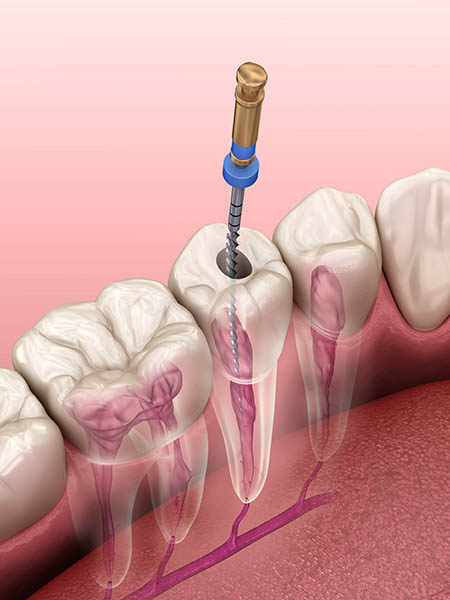
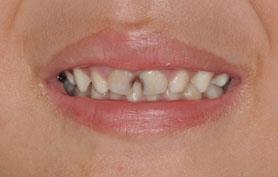



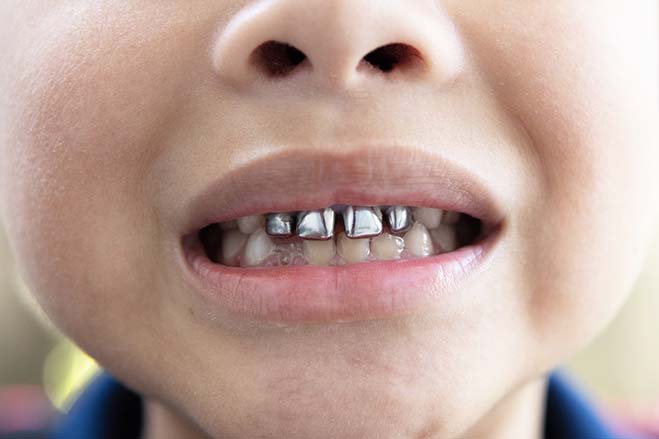



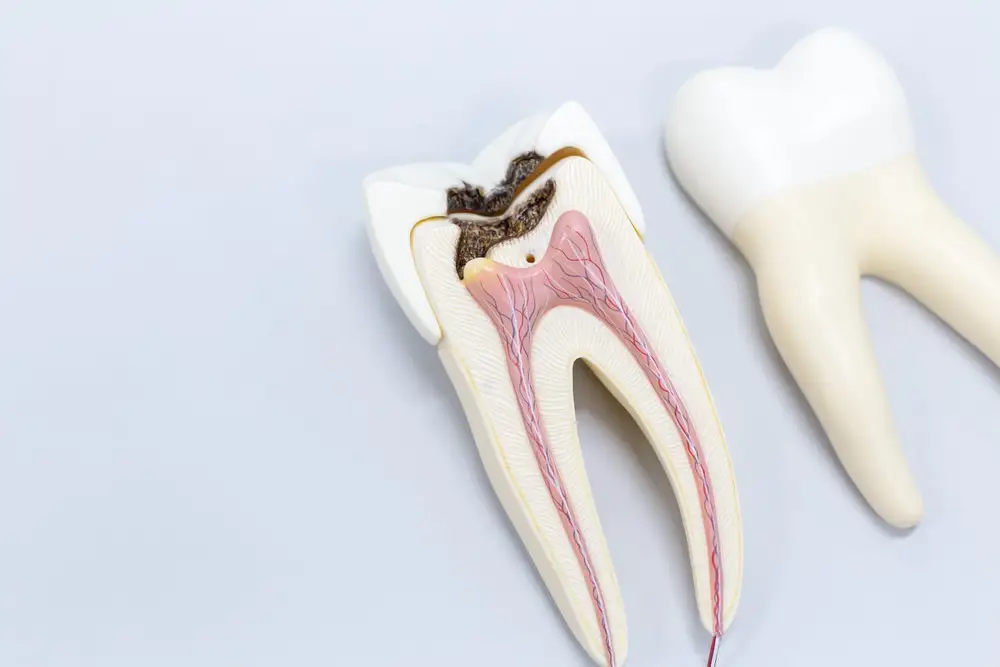
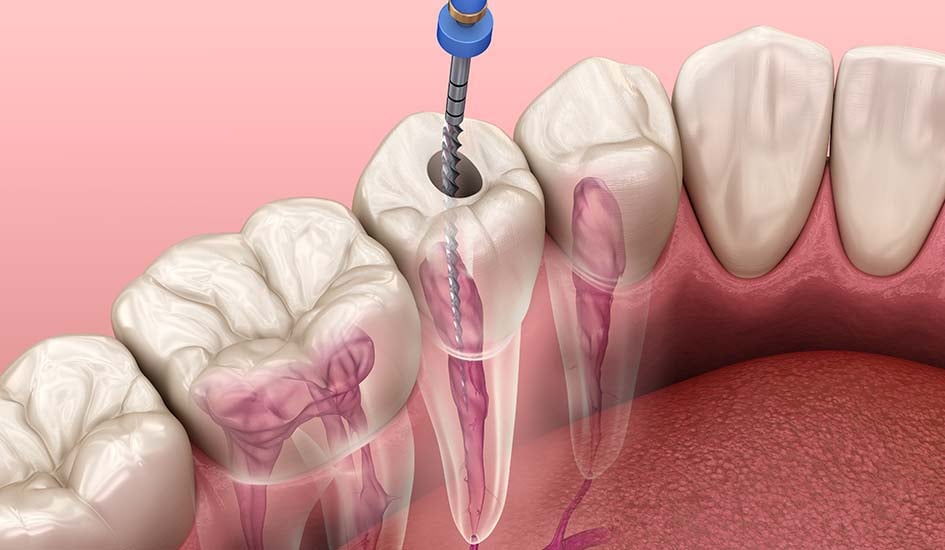
.jpg)
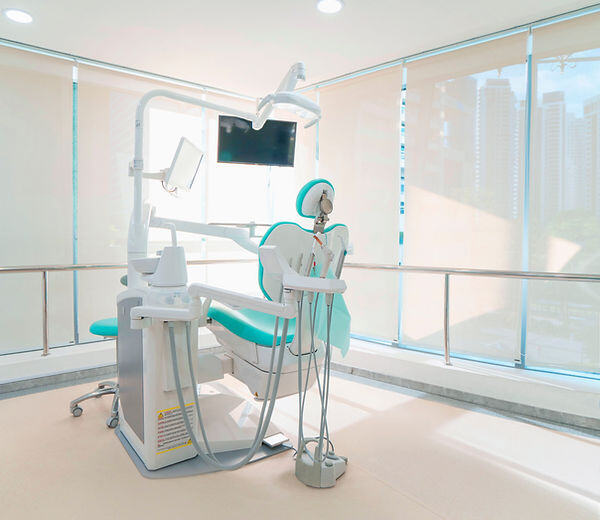

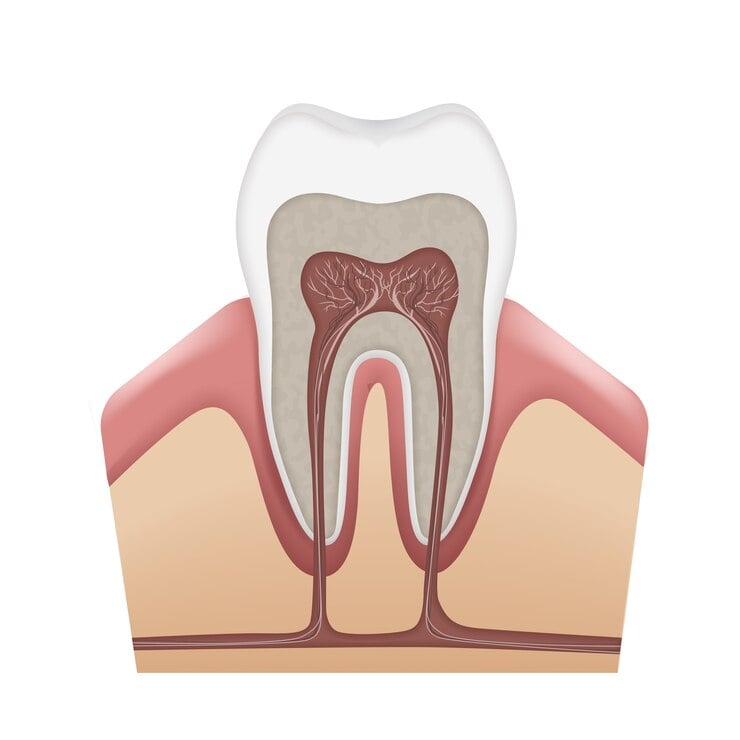


.jpg)

.png)

.png)

